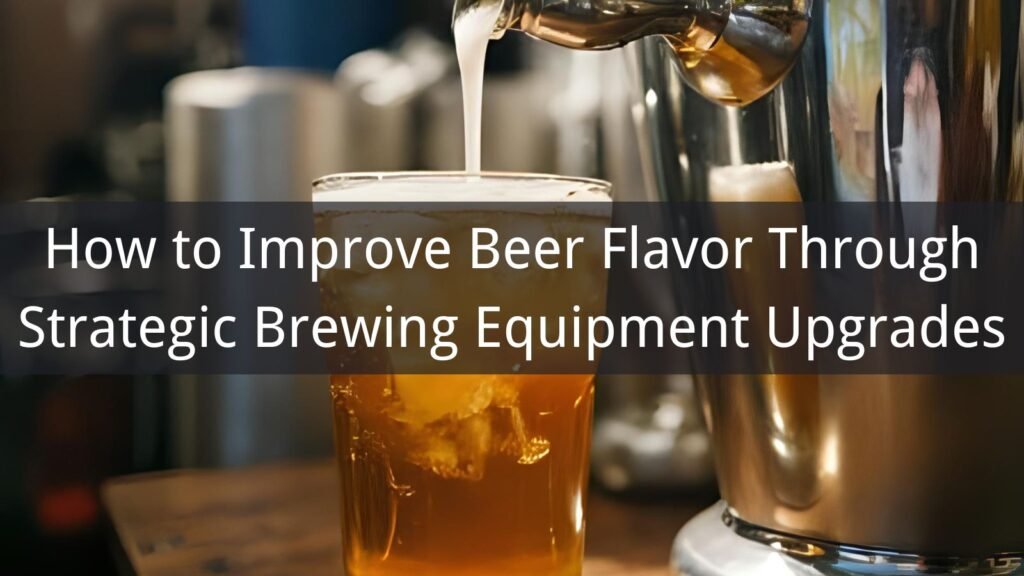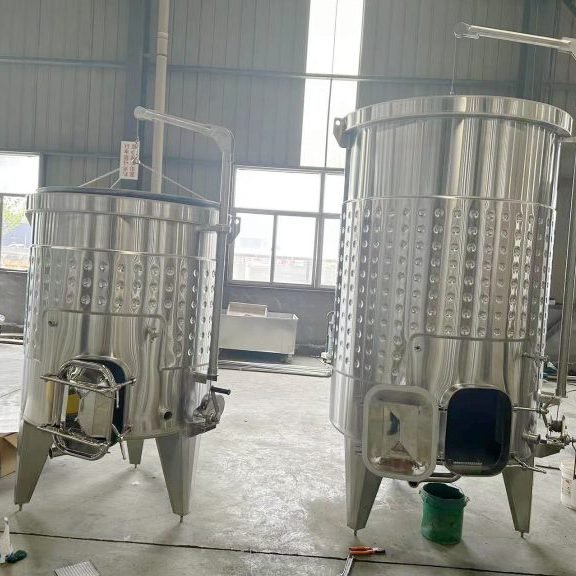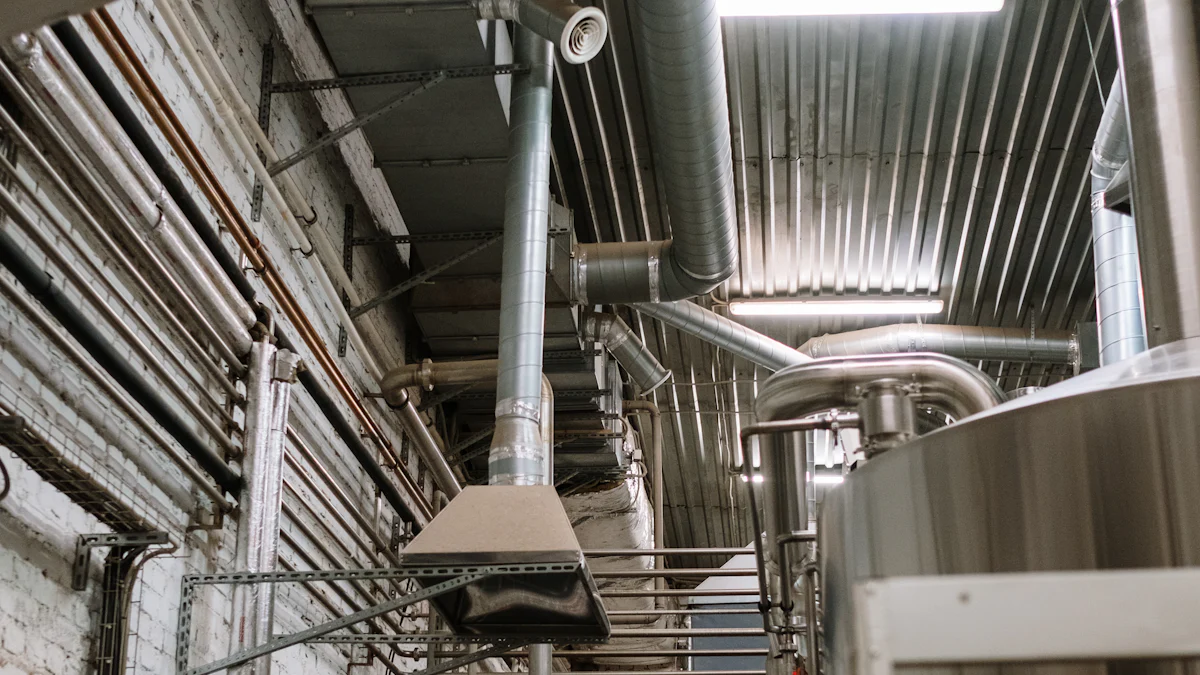
Advanced filtration systems remove unwantedparticles and compounds while preserving desirable flavor elements. Strategic upgrades to clarification equipmentcan dramatically improve beer clarity, stability, and overall flavor purity.
Multi-Stage Filtration Approaches
Table of Contents
- Importance of Beer Flavor
- Optimize the Mash System to Improve Malt Flavor
- Precisely Control Fermentation Temperature and Enhance Yeast Characteristics
- Improve Filtration and Clarification Equipment to Improve Taste Purity
- Improve Maturation and Storage System to Enhance Flavor Fusion
- Use Advanced Filling and Packaging Technology to Keep Flavor Stable
- Introduce Intelligent Brewing System to Improve Overall Quality Control
- Frequently Asked Questions
- Conclusion
Importance of Beer Flavor in Modern Brewing
Beer flavor complexity serves as the cornerstone of brewing success in today’s competitive marketplace. Consumer palates have become increasingly sophisticated, demanding nuanced flavor profiles that reflect craftsmanship and innovation. The importance of beer flavor extends beyond mere taste satisfaction—it encompasses brand identity, market positioning, and long-term business sustainability.
Quality brewing equipment directly influences every aspect of flavor development, from initial malt extraction through final packaging. Understanding this relationship enables brewers to make informed investment decisions that yield measurable improvements in product quality. Modern brewing operations must balance traditional techniques with technological advancement to achieve consistent flavor excellence.
Professional beer fermentation tanks Fermentation systems play a crucial role in flavor development, providing the controlled environment necessary for optimal yeast performance and flavor compound formation. The selection of appropriate fermentation vessels represents one of the most critical decisions in brewery equipment planning.
Optimize the Mash System to Improve Malt Flavor
The mashing process represents the foundation of beer flavor development, where starches convert to fermentable sugars and essential flavor compounds extract from malted grains. Upgrading mash tun systems can dramatically improve extraction efficiency, flavor consistency, and overall beer quality.
Advanced Mash Tun Technologies
Modern mash tun designs incorporate sophisticated temperature control systems that enable precise step-mashing protocols. These systems allow brewers to target specific enzyme activity ranges, optimizing both fermentable sugar profiles and flavor compound development. Furthermore, advanced variable-speed rake systems ensure uniform temperature distribution while preventing grain bed compaction.
| Mash System Component | Traditional Approach | Upgraded Technology | Flavor Impact |
|---|---|---|---|
| Temperature Control | Manual monitoring | Automated PID controllers | Consistentenzyme activity |
| Mixing Systems | Fixed-speed rakes | Variable-speed agitation | Improvedextraction uniformity |
| Filtration | Basic lauter tuns | Advanced false bottom designs | Cleaner wort,reduced off-flavors |
Wort Production Enhancement
Optimized lautering systems contribute significantly to flavor development by ensuring clean wort separation while maximizing extract recovery. Modern lauter tun designs feature precision-engineered false bottoms with optimal slot spacing, promoting efficient drainage while minimizing grain particle carry-over.
Upgraded sparging systems provide uniform water distribution, preventing channeling and ensuring complete sugar extraction. This meticulous approach to wort production directly translates to improved flavor complexity and consistency in the finished beer.
Precisely Control Fermentation Temperature and Enhance Yeast Characteristics
Fermentation temperature control represents one of the most critical factors in beer flavor development. Precise temperature management enables optimal yeast metabolism, directly controlling the production of esters, phenols, and other flavor-active compounds that define a beer’s unique character.
Advanced Cooling Systems
Modern fermentation vessels incorporate sophisticated cooling systems with multiple temperature zones, allowing brewers to implement complex temperature profiles throughout fermentation. These advanced systems can execute precise temperature ramps, maintaining optimal conditions for each distinct phase of the fermentation process.
Professional-grade brewing systems feature advanced glycol coolingcircuits with precise temperature control capabilities, ensuring consistent fermentation conditionsregardless of ambient temperature variations. This level of control enables brewers to reproduce specificflavor profiles with remarkable consistency.
Yeast Management Technologies
Upgraded fermentation systems include integrated yeast handling capabilities, from precise pitching rate control to automated harvesting and storage. Furthermore, dedicated yeast propagation systems ensure robust, viable yeast populations that are fundamental to achieving optimal flavor development.
| Temperature Range (°C) | Yeast Type | Flavor Compounds Produced | Beer Style Applications |
|---|---|---|---|
| 10-15 | Lager | Clean, crisp profiles | Pilsners, Lagers |
| 16-22 | Ale | Balanced esters and phenols | IPAs, Pale Ales |
| 22-28 | Belgian strains | Complex ester profiles | Belgian ales,Saisons |
Improve Filtration and Clarification Equipment to Improve Taste Purity
Advanced filtration systems remove unwanted particles and compounds while preserving desirable flavor elements. Strategic upgrades to clarification equipment can dramatically improve beer clarity, stability, and overall flavor purity.
Multi-Stage Filtration Approaches
Modern breweries implement multi-stage filtration systems that progressively remove particles and compounds of varying sizes. The process typically begins with coarse filtration to eliminate larger particles, proceeds to fine filtration for clarity enhancement, and concludes with sterile filtration to ensure microbiological stability.
Crossflow filtration technology offers significant advantages over traditional methods, delivering consistent performance while minimizing product loss. These systems are designed with self-cleaning capabilities that operate continuously, maintaining high efficiency and consistent throughput even during extended production cycles.
Clarification Technology Innovations
Centrifuge systems represent a significant upgrade from traditional settling methods, offering rapid clarification with minimal flavor impact. Modern disc-stack centrifuges can process large volumes efficiently while ensuring gentle handling of delicate flavor compounds.
Cold conditioning systems work in conjunction with filtration equipment to enhance flavor stability and clarity. These systems enable controlled precipitation of proteins and polyphenols, resulting in superior beer stability and extended shelf life.
Improve Maturation and Storage System to Enhance Flavor Fusion
Proper maturation and storage systems allow flavor compounds to integrate and harmonize, creating the complex taste profiles that distinguish exceptional beers. Upgraded storage vessels provide optimal conditions for flavor development while preserving beer quality throughout extended aging periods.
Variable Capacity Storage Solutions
Professional variable capacity tanks offer brewers unprecedented flexibility in managing different batch sizes and aging requirements. These systems minimize oxygen exposure while accommodating varying volumes, a critical capability for maintaining flavor integrity during maturation.
Advanced storage tanks feature precision pressure control systems that maintain optimal CO₂ levels throughout the maturation process. This controlled environment effectively prevents oxidation while simultaneously allowing for natural carbonation development.
Temperature-Controlled Aging Environments
Sophisticated temperature control systems enable the execution of complex aging profiles, significantly enhancing flavor development. These advanced systems maintain precise temperature ranges for extended periods, facilitating controlled flavor evolution and seamless integration of complex taste components.
| Storage Condition | Temperature (°C) | Duration | Flavor Development |
|---|---|---|---|
| Primary maturation | 2-4 | 2-4 weeks | Yeast settling, green flavor reduction |
| Secondary conditioning | 0-2 | 4-8 weeks | Protein precipitation, flavor integration |
| Extended aging | 1-3 | 2-12 months | Complex flavor development |
Use Advanced Filling and Packaging Technology to Keep Flavor Stable
Advanced packaging systems preserve the delicate flavor compounds developed throughout the brewing process, ensuring consumers experience the beer’s intended taste profile. Modern filling technologies minimize oxygen pickup and consistently maintain product integrity from the brewery to the consumer.
Counter-Pressure Filling Systems
Counter-pressure filling technology eliminates foam formation and prevents oxygen pickup during packaging, preserving volatile flavor compounds and significantly extending shelf life. These advanced systems maintain beer quality by effectively preventing oxidation and carbonation loss throughout the filling process.
Automated filling lines with integrated quality control systems ensure consistent fill levels and optimal package integrity. These sophisticated systems continuously monitor key parameters during operation, automatically identifying and rejecting any packages that fail to meet stringent quality standards.
Packaging Environment Control
Controlled atmosphere packaging environments minimize oxygen exposure during filling and capping operations. Nitrogen or CO₂ purging systems create inert atmospheres that effectively protect delicate flavor compounds from oxidation damage.
Advanced capping systems ensure proper seal integrity while consistently minimizing headspace oxygen levels. These precision systems contribute significantly to maintaining flavor stability and freshness throughout the beer’s entire shelf life.
Introduce Intelligent Brewing System to Improve Overall Quality Control
Intelligent brewing systems integrate advanced sensors, automation, and data analytics to optimize every stage of beer production. These integrated platforms provide real-time monitoring and precise control capabilities, enabling consistent flavor reproduction and supporting continuous quality improvement throughout the brewing process.
Process Automation and Control
Modern brewing control systems automate critical processes while providing comprehensive data logging and analysis capabilities. These advanced systems execute complex brewing recipes with precision, ensuring consistent results across multiple production batches.
Integrated quality management systems track key parameters throughout the entire production cycle, creating detailed records that enable systematic process optimization and rapid troubleshooting. This data-driven approach to brewing facilitates continuous improvement in both flavor consistency and overall product quality.
Predictive Maintenance Systems
Advanced monitoring systems predict equipment maintenance needs before failures occur, preventing production disruptions that could compromise beer quality. These sophisticated systems continuously analyze equipment performance data to optimize maintenance schedules and prevent unexpected downtime.
At sdchenma.com, Shandong Chenma Machinery Co., Ltd. specializes in manufacturing advanced brewing systems that incorporate these intelligent control technologies. Our comprehensive solutions integrate seamlessly to provide complete brewery automation and precise quality control.
Quality Assurance Integration
Intelligent brewing systems integrate comprehensive quality assurance protocols throughout the entire production process. These systems automatically monitor critical control points and immediately alert operators to any deviations from specifications. This proactive approach to quality management ensures consistent flavor profiles while significantly reducing the risk of quality issues.
| System Component | Monitoring Parameters | Control Actions | Quality Impact |
|---|---|---|---|
| Mash automation | Temperature, pH, time | Automated step-mashing | Consistent extract quality |
| Fermentation control | Temperature, pressure, gravity | Cooling system activation | Optimal flavor development |
| Packaging monitoring | Fill level, CO2, O2 | Rejection systems | Product consistency |
Frequently Asked Questions
How much investment is required for brewing equipment upgrades?
Equipment upgrade costs vary significantly based on brewery size and specific requirements. Small craft breweries might invest $50,000–$200,000 for targeted improvements, while larger operations could require $500,000–$2,000,000 for comprehensive system upgrades. The return on investment typically manifests through improved product quality, increased production efficiency, and reduced operational waste.
What are the most impactful equipment upgrades for flavor improvement?
Fermentation temperature control systems typically deliver the most substantial improvements in flavor quality, followed by advanced mashing equipment and precision filtration systems. These strategic upgrades directly influence the most critical stages of flavor development throughout the beer production process.
How long does it take to see results from equipment upgrades?
Immediate improvements in process control and consistency are typically evident within the first few production batches. However, full optimization of new equipment and processes may require 3–6 months as brewing teams develop expertise with the upgraded systems and progressively refine their operational techniques.
Can equipment upgrades help with beer consistency issues?
Yes, modern brewing equipment with integrated control systems significantly improves batch-to-batch consistency. Automated temperature regulation, precision timing systems, and comprehensive quality monitoring eliminate many of the variables that traditionally lead to inconsistent results.
What maintenance considerations come with upgraded brewing equipment?
Advanced brewing equipment requires specialized maintenance protocols and trained technicians. However, many modern systems incorporate predictive maintenance capabilities that reduce overall maintenance demands by preventing unexpected failures and optimizing service schedules through data-driven insights.
Conclusion
Strategic brewing equipment upgrades represent a powerful pathway to achieving exceptional beer flavor quality and consistency. From optimized mashing systems that maximize flavor extraction to intelligent control systems that ensure reproducible results, modern brewing technology enables brewers to unlock their full creative potential.
The integration of advanced fermentation control, sophisticated filtration systems, and intelligent automation creates a comprehensive approach to flavor enhancement that addresses every critical aspect of beer production. These investments in equipment technology translate directly to improved product quality, enhanced market competitiveness, and long-term business success.
Shandong Chenma Machinery Co., Ltd. provides comprehensive brewing solutions designed to elevate beer quality and production efficiency. Our advanced stainless steel mixing tank systems and complete brewery installations incorporate the latest technological innovations to support brewing excellence.
For breweries ready to elevate their flavor profiles to the next level, professional consultation and equipment assessment represent the essential first steps toward transformation. Contact our team at WhatsApp: 0086 180 6342 1809 or Email: admin@sdchenma.com to discuss your specific brewing goals and explore customized equipment solutions designed to maximize your beer’s flavor potential.
Located in the Economic Development Zone of Pingyuan County, Dezhou City, Shandong Province, Chenma Machinery combines innovative engineering with proven manufacturing excellence to deliver brewing systems that consistently produce exceptional beer quality. Our ISO-certified facility and experienced engineering team ensure every system meets the highest standards of performance, reliability, and flavor enhancement capability.



